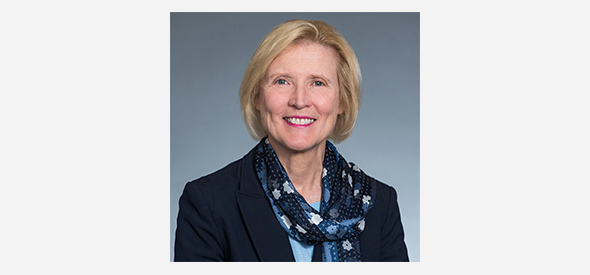Planning for an Uncertain Future
Author(s):
Roseann O’Reilly Runte

Today, we are in mid-crisis mode across the country and around the world. While managing the daily issues that arise, we are all trying to imagine the best possible ways to support our country as we emerge (and emerge we will!) from this pandemic. We do not know exactly where we are in terms of the length of this affliction or if it is a single event or something that will repeat itself or mutate and recommence over time.
We cannot yet evaluate the effectiveness of our responses. The study of past plagues, while edifying, is not extremely helpful because the world has so completely changed with greater scientific knowledge, more technology, improved communications and transportation, resulting in the rapid movement of populations and products. People, however, have not changed. When the Great Plague ended centuries ago, for example, people shortly began to venture forth and congregate once more. Even in the recent past, during the SARS epidemic, we stopped shaking hands, but post-SARS we went right back to our old habits.
How can we plan effectively for the future? Moving forward, we will certainly include major unforeseen crises as part of our risk-assessment and management process. In the past, we typically turned our attention to the most likely risk to be confronted by our organization. I doubt that many of us, especially the non-epidemiologists, would have included a pandemic on the list. We would likely not have listed massive floods and raging wildfires either.
As researchers, we can list the possible woes that might afflict our human condition and affect our performance. Then we might hunker down and build defenses, a bit like the bunkers of the Cold War. However, we can also turn the question around and ask what knowledge will we need most to avoid and prevent disasters. Rather than plan to mitigate the effects of such crises, we can plan to create the conditions by which they will be rendered nearly impossible. For example, rather than build a bulkhead to reduce the damage of flooding, we might turn our attention to the causes of flooding. When there was an epidemic of polio, we built iron lungs but we quickly turned our attention to the importance of an effective vaccine.
The challenges humankind faces can perhaps be summarized in three words: health, the economy and the environment. The three are inextricably related. Without good health, work is not possible, the economy will suffer, and we will be unable to rise to the challenges of the environment. Without a strong economy, health and the environment will be negatively affected and without a good environment, health and the economy will lag. These three challenges encapsulate the Sustainable Development Goals of the United Nations. They are local, national and global. They affect every individual on the planet.
If we focus on progress in these three areas, we will be able to bring together goals and plans, hopes and cautions. Every individual and every agency, every nation, could ideally direct efforts in the same direction and each small step we take ourselves, multiplied, would go a long way to helping Sisyphus push that metaphorical boulder up the mountain.
For the research community, in order to succeed in these goals, we need to have a strong foundation of education, expertise and the equipment that will support research in these areas. We also need to encourage business and industry and communities to work together. We also must adopt a global perspective and build the capacity to join international efforts to achieve these goals.
For the nation, once this crisis abates, there will be a need for economic stimulus. If this support focused on three themes: the environment, health and economic development, we would create a thoughtful guide for decision makers and it would encourage all efforts to align. Coming out of this pandemic, we could end up with clearer mandates and a stronger vision. We can ensure that we rethink our past and adopt a new frame for our vision so that we share determination to move forward as a research community, a global community and as a nation that provides thoughtful leadership.
More on the Author(s)
Roseann O’Reilly Runte
Canada Foundation for Innovation
President and CEO

